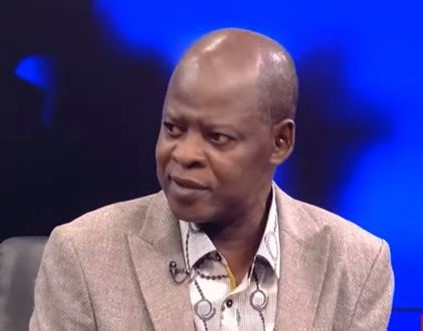The Co-Chair of the Ghana Extractive Industry Transparency Initiative (GHEITI), Dr Steve Manteaw has stated that Ghana's Minerals Commission is not adequately equipped to regulate mining due to staff constraints.
According to him, there is a Minerals Commission office stationed in Wa that is responsible for Bole in the Savannah Region and nearby areas.
He emphasised that this level of staffing is insufficient to properly control and regulate mining activities in those areas.
Dr Manteaw stressed that active mining in Bole requires a dedicated Minerals Commission office there, as well as additional offices in regions like the Upper West and Upper East, to reduce the distances and improve oversight.
Speaking on JoyNews AM Show, Dr Manteaw said, "Look, travelling from here to even Dollar Power—we are in Bole, and Dollar Power is in the Bole District—but travelling from here to Dollar Power would take you not less than two hours. So, the distances are quite large, and we need more staff, more personnel on the ground to better regulate."
Dr Manteaw also expressed concern about the limited involvement of locals in the mining sector, which has permitted foreign control.
He noted that the heightened involvement of foreigners in the sector is largely due to the lack of credit facilities available to local miners to finance their operations.
This concern comes in light of a report from the Business and Financial Times, which reveals that Chinese investors are interested in acquiring stakes in several major mining operations, including the Akyem Mines. Although there has been no official communication regarding this interest, it has sparked debate about the future of Ghana's strategic resources.
He pointed out that it is not only Chinese nationals who are involved in mining in Bole, but also people from Burkina Faso, Mali, Niger, and other countries who are also financing illegal mining activities.
“They bring the money and have a certain informal arrangement with you: whatever gold you produce, you sell to them. When they get the gold, they do not actually export it through approved channels, such as Kotoka International Airport. Instead, they are so close to the border with Ivory Coast and Burkina Faso that they cross the border with it, causing us to lose all the revenue opportunities associated with their activities.”
Latest Stories
-
Kenyan blogger’s wife seeks answers after his death in police custody
1 hour -
Gunmen kill at least 100 people in Nigeria’s Benue state, Amnesty International says
1 hour -
Ivory Coast workers say Unilever is violating their union rights amid share sale, documents show
2 hours -
Trump floats plan for undocumented farm and hotel workers to work legally in the U.S.
2 hours -
South Africa stocks suffer $3.7bn losing streak from foreign investors
2 hours -
Mahama orders military to secure Bolga-Bawku-Pulmakom road
2 hours -
Nigerian President Tinubu’s pardon of ‘Ogoni Nine’ draws ethnic group’s rejection
2 hours -
Senior Kenyan policeman arrested over death of blogger in custody
3 hours -
Egypt deports dozens more foreign nationals heading for march to Gaza
3 hours -
Egypt halts fertiliser production as Israeli gas disruptions deepen energy strain
3 hours -
Mali hopes Russia partnership will help end raw gold exports
3 hours -
WHO warns of spread of cholera outbreak from Sudan to Chad refugee camps
4 hours -
Tunisia sentences prominent opposition figure Abir Moussi to two years in prison
4 hours -
Half of December shows in Ghana by your favourite artistes were all free – Ruddy Kwakye
4 hours -
My dad gave me a kidney – now I can have my dream wedding
4 hours

